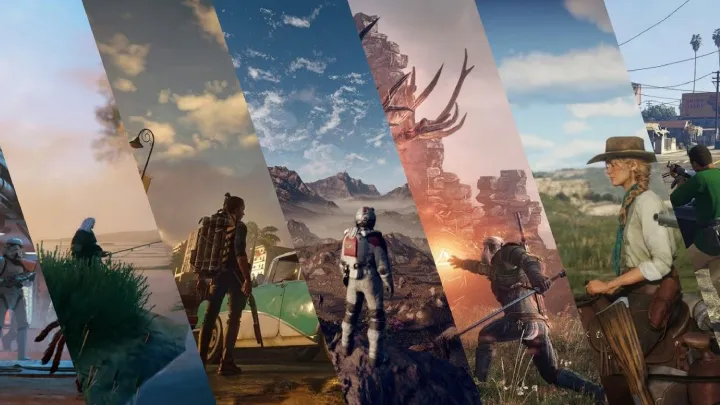Introduction: Call of Duty’s Unstoppable Momentum
Few video game franchises can claim the cultural, financial, and technological dominance that Call of Duty (CoD) has achieved. Since its humble beginnings in 2003, when Infinity Ward released the first Call of Duty title set in World War II, the series has grown into a multi-billion-dollar juggernaut spanning consoles, PCs, and mobile platforms. With yearly releases, cinematic single-player campaigns, competitive multiplayer, and free-to-play expansions, Call of Duty has redefined how first-person shooters (FPS) are developed, marketed, and consumed.
In 2025, Call of Duty remains at the forefront of gaming discussions. Whether through the ever-expanding Call of Duty: Warzone, the success of Call of Duty: Mobile, or speculation about upcoming titles, the franchise shows no signs of slowing down. This article provides a deep dive into its evolution, its present-day status, and the news shaping its future trajectory.
Part I: The Evolution of Call of Duty
1. The Early Days (2003–2007)
The first Call of Duty, launched in 2003, placed players into the gritty realism of World War II. Unlike other shooters at the time, it emphasized squad-based gameplay and immersive atmosphere. Players could fight alongside AI soldiers, creating a sense of large-scale war that felt authentic.
Titles like Call of Duty 2 (2005) and Call of Duty 3 (2006) expanded on this formula. However, the real turning point came with Call of Duty 4: Modern Warfare (2007). This entry catapulted the franchise from a respected WWII shooter to the king of modern military gaming. With a gripping single-player story and groundbreaking multiplayer progression systems (such as killstreaks and custom loadouts), Modern Warfare redefined the FPS genre and laid the foundation for what Call of Duty would become.
2. The Era of Sub-Franchises (2008–2015)
Following Modern Warfare’s success, Activision expanded Call of Duty into multiple sub-series:
- Modern Warfare Trilogy (2007–2011)
- Black Ops Series (2010–present)
- Advanced Warfare & Infinite Warfare (2014–2016)
Each sub-franchise brought innovation. Black Ops introduced Cold War espionage and fan-favorite characters like Alex Mason and Woods. Advanced Warfare experimented with futuristic exosuits, while Infinite Warfare pushed into space combat.
During this time, Call of Duty also became synonymous with esports. Titles like Black Ops II and Advanced Warfare solidified CoD’s presence in professional tournaments.
3. The Warzone Era (2019–Present)
A major shift occurred in 2019 with the release of Call of Duty: Modern Warfare (reboot) and its free-to-play battle royale companion, Warzone. Warzone transformed the franchise into a live-service ecosystem, updated regularly with new maps, weapons, and seasonal events. It reached over 125 million players worldwide, marking one of the most successful pivots in gaming history.
Part II: Current Landscape of Call of Duty in 2025
1. Warzone as a Cultural Phenomenon
Warzone remains the heartbeat of the franchise. It continuously evolves with seasonal updates, collaborations, and limited-time events. Crossovers with movies, sports leagues, and even anime franchises have kept it relevant beyond the gaming sphere.
Notably, Warzone has embraced cross-platform play, uniting Xbox, PlayStation, and PC gamers in a single community. This has strengthened its esports scene and kept player engagement high.
2. Call of Duty: Mobile’s Global Success
Launched in 2019, Call of Duty: Mobile has become a major revenue generator, surpassing 650 million downloads worldwide. It offers a mix of classic maps, battle royale, and new modes optimized for mobile play. Particularly in Asia, Latin America, and the Middle East, CoD Mobile has outperformed even console versions in popularity.
3. Esports and the Call of Duty League (CDL)
The Call of Duty League (CDL) has matured into a premier esports competition. With city-based franchises (similar to the Overwatch League), CDL has attracted global audiences. Prize pools now reach multi-million-dollar figures, and major sponsors have joined, giving CoD a firm seat at the esports table alongside titles like League of Legends and Counter-Strike.
4. Technological Innovations
Recent CoD entries have leveraged advanced technology such as ray tracing, AI-powered NPCs, and adaptive haptic feedback on next-gen controllers. Activision has also explored cloud gaming, allowing CoD titles to run smoothly even on lower-end hardware.
Part III: News and Future Developments
1. Rumors of Call of Duty 2025
Industry insiders suggest Treyarch is leading development on the 2025 release. Speculation points toward a continuation of the Black Ops Cold War storyline, possibly exploring conflicts in the late 1980s and early 1990s. Fans expect a hybrid between tactical realism and CoD’s signature fast-paced gunplay.
2. Expansion into VR and AR
Reports indicate Activision is experimenting with virtual reality and augmented reality experiences for Call of Duty. While not yet confirmed, the integration of VR could represent the next frontier of immersive gameplay.
3. AI Integration for Dynamic Gameplay
Another hot topic is the use of advanced AI. Activision has reportedly tested AI-driven NPCs that adapt to player behavior in real-time, creating more lifelike and unpredictable combat scenarios.
4. Continued Warzone Growth
Warzone 2.0 is now a platform rather than just a mode. Seasonal events, new competitive leagues, and global partnerships are expected to keep it thriving through 2025 and beyond.
Part IV: Cultural Impact
Call of Duty has influenced more than just gaming:
- Streaming & Content Creation: Twitch and YouTube remain flooded with CoD content, from casual playthroughs to competitive highlights. Streamers like Nickmercs and Scump have built entire careers around CoD.
- Pop Culture Integration: CoD has appeared in movies, TV shows, and music videos, further embedding itself in mainstream culture.
- Merchandising & Crossovers: From CoD-themed sneakers to celebrity operator skins, the franchise has become a global brand, not just a game.
Conclusion: Call of Duty’s Unending Evolution
As we move deeper into 2025, Call of Duty stands as a rare franchise that has maintained relevance for over two decades. By balancing nostalgia with innovation, Activision has ensured its survival in an industry where trends shift rapidly.

















